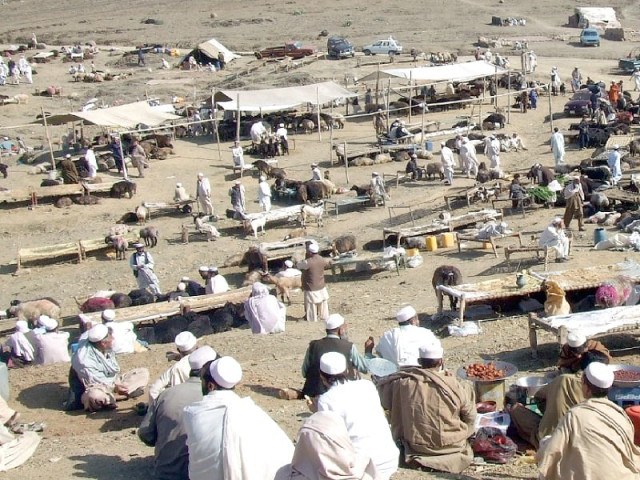Growing concern: Foot-and-mouth disease plagues Mohmand
Dr. Gul said farmers should avoid waiting for the vaccine and use imported drugs from Korea.

Dr. Gul said farmers should avoid waiting for the vaccine and use imported drugs from Korea. PHOTO: EXPRESS
Due to lack of vaccinations, a large number of animals have been infected by the deadly foot-and-mouth disease in Mohmand Agency.
As people in the Federally Administered Tribal Areas (Fata) keep livestock to sustain their livelihood, the government has opened veterinary hospitals in each agency. But farmers in Mohmand Agency say there are no arrangements for animal vaccination at the facility in their area and many animals continue to die as the disease spreads.
Muhammad Neqab Khan, a resident of Mahmad Ghat, said several of his cattle have been affected and the disease has become an epidemic. “The disease is caused due to a lack of vaccinations and can affect both large and small cattle,” said Neqab, adding he had lost two animals in the last few days.

Sher Khan, another farmer, said they use traditional methods to treat their animals in the absence of preventive measures. “At least 40% of animals in the agency have been affected as every household has lost at least one animal,” he claimed. “The lack of vaccination has badly affected these animals even though we do our best to care for their needs.” Sher further said foot-and-mouth disease is common among cattle in Safi tehsil and other areas.
Dr Sadiq Gul, head of the veterinary hospital in Gallani, Mohmand Agency said the contagious disease was rapidly spreading. “It is one of the most serious diseases that affect cloven-hoofed animals (those with divided hoofs),” he said.
He added the disease does not kill large animals, but is fatal for newborns. “The disease only makes them (large animals) incapable of providing meat and milk.”
“The high temperature affects the animal’s mouth and prevents it from eating any food,” said Dr Gul. “Similarly, the animal’s foot is also affected and the infection is completely spreads is six months, after which an animal may die without treatment.”
Dr Gul said there were limited funds for the agency’s hospital, due to which free vaccinations were not available. He maintained, however, that farmers should avoid waiting for the vaccine. “Imported drugs from Korea cost only Rs200, and are very useful in preventing this disease.”
Published in The Express Tribune, July 15th, 2013.













COMMENTS
Comments are moderated and generally will be posted if they are on-topic and not abusive.
For more information, please see our Comments FAQ